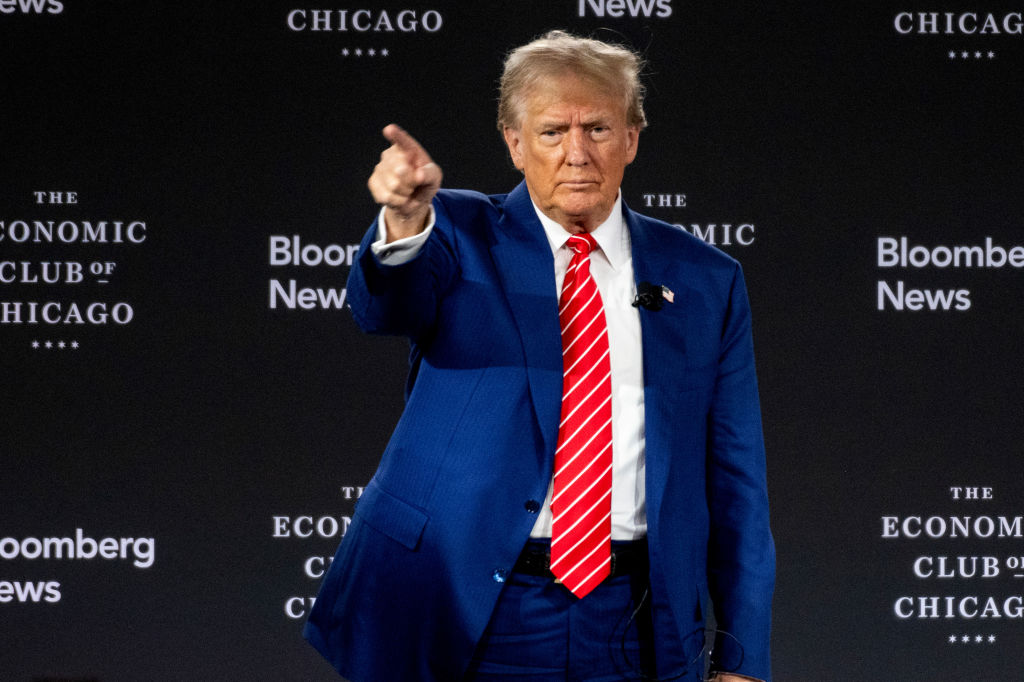On Tuesday, during an hour-long discussion at The Economic Club of Chicago, Donald Trump fleshed out his economic views for a second term.
A detail that might have escaped most is that, despite advocating for 100% or 200% on Chinese goods and other foreign products, Trump provided an option for any company that wants to avoid these tariffs: relocate manufacturing to America. This is not the first time the former president has floated the possibility, and it could be the key to ending the trade war he initiated six years ago.
Trump’s tough position on China has often been mistakenly seen as ideologically motivated. However, while some members of his administration might have been driven by genuinely hawkish outlooks, the same cannot be said for the Republican candidate, who was arguably driven by a pragmatic approach based on the defence of what he perceived as American industrial interests rather than a crusade against China.
Despite hopes for improved Sino-American relations under Joe Biden, his administration doubled down on Trump’s line. Yet Trump’s approach differed in principle from that of his White House successor. The Democratic Party justified its China policy on the grounds to preserve a “rules-based liberal order” — the same values once cited to advocate open trade with China.
However, an ideologically charged approach to relations between the two superpowers left Biden’s administration with little margin for actual diplomacy. Where the President called Xi Jinping a “dictator” after their summit in San Francisco last year, which was supposed to be a moment of rapprochement, Trump’s interest-based approach could find more space for transactionalism.
The former president showed in Chicago that a tough line on trade with China would be the most likely course of action if he regains the White House, but he is open to negotiating concessions. Geopolitical risk analyst Marko Papic noted that even during his first term, Trump didn’t envision an endless trade war with China. Instead, his strategy was to leverage a tough approach on trade to negotiate a Plaza Accord-like agreement, aiming to recalibrate the economic relationship between the two nations.
Despite talk of decoupling, the US and China remain deeply interconnected economically and may be reaching a point where negotiation seems feasible. Western tariffs on China have had an effect and, after the Covid-19 pandemic and a series of domestic economic challenges, Beijing might be more open to dialogue than it was six years ago. Trump’s goal wouldn’t be economic isolationism, but instead attracting investment and manufacturing to the US, redrawing the flow of the global economy with America instead of China at the centre.
This is easier said than done, though. There will be opposition to the approach from within the US, not only from Democrats and the national security establishment but also from GOP hawks. Indeed, a tough stance on China is the only existing bipartisan consensus in Washington. On the other hand, Beijing might not be able to meet Trump’s demands.
In any case, a full reversal of Sino-American trade relations is unlikely, and doesn’t seem to be Trump’s ultimate goal anyway. American manufacturing suffers from trade imbalances with China, and addressing that concern will remain a top priority of any White House administration. Any trade agreement that Trump crafts with Beijing will look more like a truce than a peace deal, but that may prove good enough.











Join the discussion
Join like minded readers that support our journalism by becoming a paid subscriber
To join the discussion in the comments, become a paid subscriber.
Join like minded readers that support our journalism, read unlimited articles and enjoy other subscriber-only benefits.
Subscribe